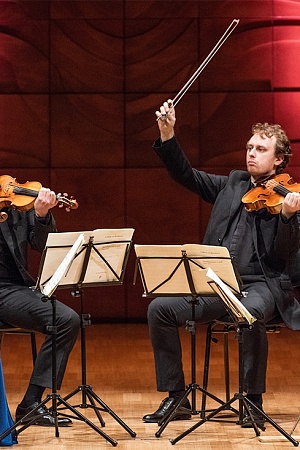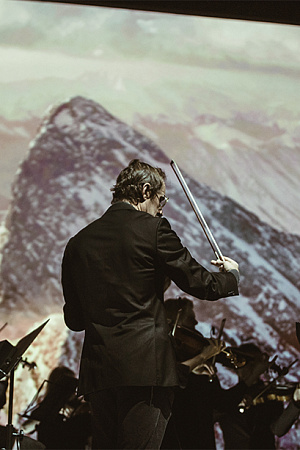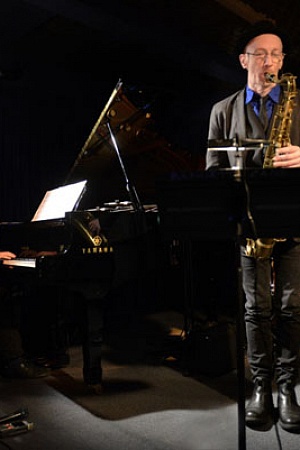Brahms Revelation (Sydney Symphony Orchestra) ★★★★
This week’s subscription series of the Sydney Symphony Orchestra included the world première of a new Australian cello concerto by Brett Dean, bookended by venerable late-nineteenth-century works by Edward Elgar and Johannes Brahms.
Elgar’s Serenade in E minor for strings, Op.20, with its nostalgic sonorities, opened the program. Like Richard Wagner’s Siegfried Idyll (written some twenty years earlier), it was a birthday present from the composer to his wife; an intimate musical offering of love, which may be why some of the finest recordings of the Serenade have been made by chamber orchestras, though nothing in the score gives a hint regarding the size of the performing ensemble. While the full string section of the SSO enriched the volume in this performance, it diminished the potential for introverted tenderness in this lovely work.
Curiously, David Robertson’s energetic conducting seemed to overexcite the flow of the first movement, whose unusual tempo reference to piacevole (pleasant or agreeable) suggests a different mood. The SSO never plays less than well under Robertson, but this time the tone colours were sometimes unclear and more subtlety was needed. As indicated by the score, the ensemble was reduced occasionally, and the absence of the double bass section in the first half of the second movement indirectly contributed to some of the most attractive moments of the performance – notwithstanding the excellent qualities of those musicians.
The pairing of the words in ‘Brahms Revelation’, the title of the concert, makes an uncomfortable fit, as revelatory is not a term many would associate with the German master’s brilliant oeuvre. On the other hand, it was an experience, akin to the revelatory, to observe German guest artist Alban Gerhardt’s flawless performance of Brett Dean’s Cello Concerto. Gerhardt is renowned for promoting contemporary compositions, particularly those written for him. Uncommonly, he identifies with these new works to such an extent that he memorises them. Contemporary compositions, almost without exception, use a complex musical language, with the whole gamut of known (and sometimes unknown) technical difficulties. Performing them without a score in front of the artist requires a supreme understanding of the work, as there are no recordings to refer to.
Continue reading for only $10 per month. Subscribe and gain full access to Australian Book Review. Already a subscriber? Sign in. If you need assistance, feel free to contact us.










Leave a comment
If you are an ABR subscriber, you will need to sign in to post a comment.
If you have forgotten your sign in details, or if you receive an error message when trying to submit your comment, please email your comment (and the name of the article to which it relates) to ABR Comments. We will review your comment and, subject to approval, we will post it under your name.
Please note that all comments must be approved by ABR and comply with our Terms & Conditions.